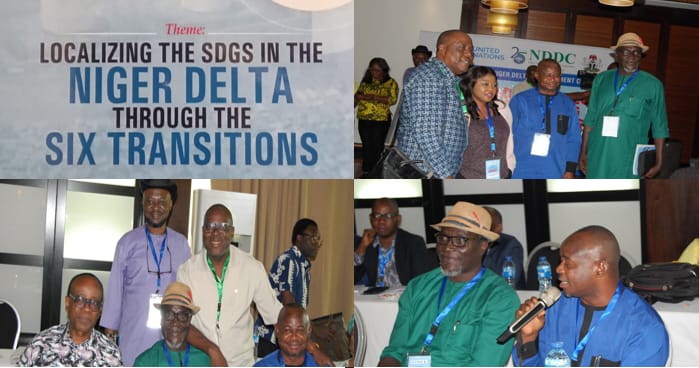The Niger Delta Development Commission (NDDC) and the United Nations Development Programme (UNDP), in collaboration with civil society organisations and other stakeholders, have unveiled a roadmap to localize the Sustainable Development Goals (SDGs) in the Niger Delta.
The plan, discussed during a two-day dialogue on the UN’s Six Transitions and the Niger Delta Regional Development Strategy (NDRDS), outlined urgent interventions in environment, education, energy, healthcare, MSMEs, and water and sanitation.
The Foundation for Environmental Rights, Advocacy and Development (FENRAD-Nigeria) was among the participants, represented by its Executive Director, Nnanna Nwafor.
Participants highlighted key challenges facing the region, including environmental pollution, weak agricultural systems, poor school infrastructure, low digital access, unreliable energy supply, weak healthcare services, limited MSME support, and poor water and sanitation (WASH).
Resolutions and recommendations
Environment: Enforce regulations, promote climate-smart farming, reduce emissions, and address flooding.
Education: Upgrade schools, introduce Smart Schools, expand ICT, and boost teacher training.
Energy: Develop renewable mini-grids, strengthen partnerships, and make clean energy affordable.
Healthcare: Equip primary healthcare centres, incentivize workers, and expand telemedicine.
MSMEs: Improve ease of doing business, provide micro-credit, and establish industrial hubs.
WASH: Expand clean water and sanitation access, finance PPPs, and support business incubation.
Cross-cutting: Strengthen UN–NDDC–CSO collaboration, ensure gender and youth inclusion, promote community ownership, and set measurable indicators.
The dialogue, coming shortly after NDDC’s 25th anniversary, reaffirmed a renewed push for peace, sustainable growth, and stronger stakeholder collaboration in the region.


